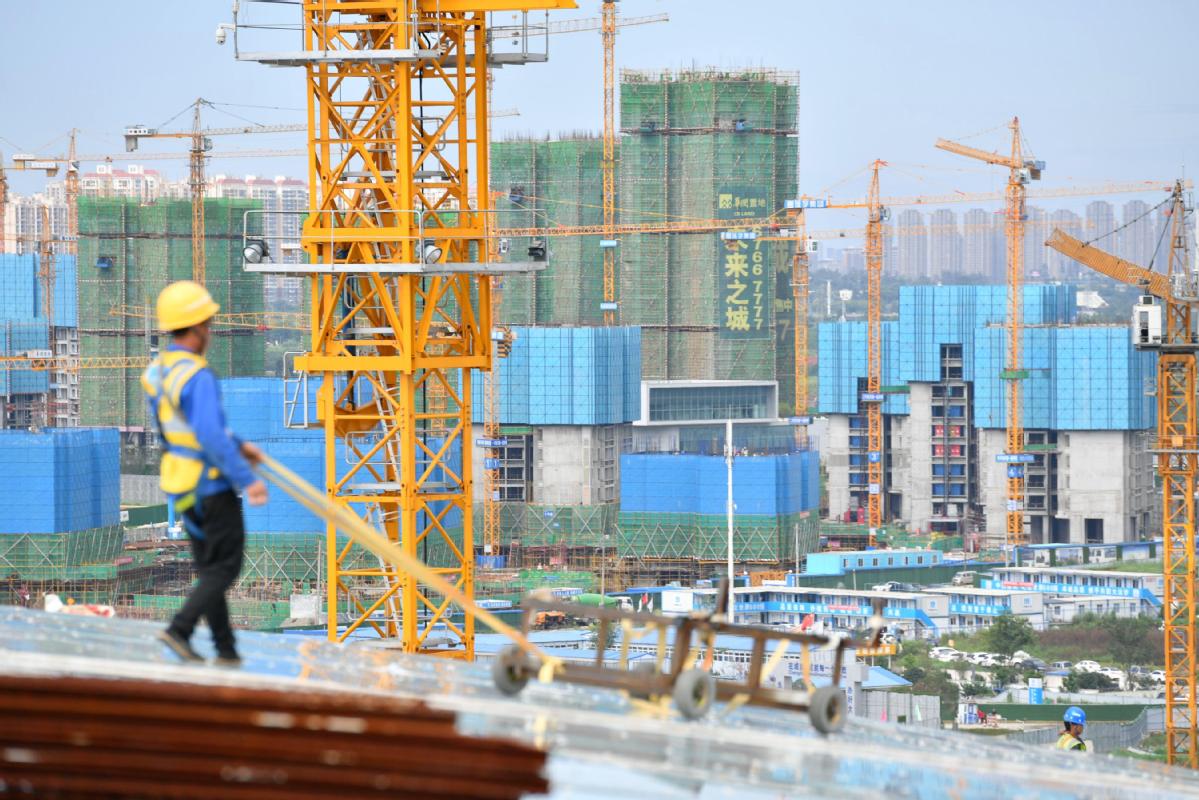Home price stability-goal's for real


As many as 60 percent of users of Beike app, an online unit of Ke Holdings, received property-related information online via websites or apps, according to a survey by the Beike Research Institute.
Changes are also visible in the redesign of residential apartments' interiors as the experience of working/studying from home and contactless deliveries has spawned demand for customization, Brodie said.
Real estate developers are investing big time in digitalization. According to Zhang Yan, CEO of China Real Estate Information Corp, 14 of the nation's top 50 property developers by revenue allocated several million yuan each for digitalization, 16 developers spent more than 10 million yuan each, and a few lavished more than 100 million yuan each last year.
More than half of the top 50 property firms have also created specialized digital operations teams. Each such digital team has more than 50 members, said Zhang.
"Real estate is one of the most important industries of China. It is currently undergoing a transition, and digitalization would play a supportive role in this process," said Feng Jun, president of the China Real Estate Association.
According to Feng, the industry should step up efforts to increase digitalization, especially in the construction of property projects and their subsequent maintenance, operations and renovation.
"In addition, digitalization can promptly match homebuyers with their preferred apartments to raise home trading efficiency," Feng said.
The Beike survey report said the central government's efforts to maintain growth in the volume of real estate transactions between 7 percent and 8 percent would be one of the best drivers of the sector's digitalization.
Promoting digitalization in home transactions calls for the participation of related government bodies, the acceleration of digital infrastructure development, and the cultivation of an adequate number of professionals with the necessary talent and digital skills.
There is also increasing awareness about the need for better property management, according to James Macdonald, head and senior director of Savills China Research.
Agreed Ding Zuyu, CEO of E-House (China) Enterprise Holdings Ltd. "There were 42 listed property management companies as at the end of December 2020, and with their broader services to offer, it is expected their combined management space would increase by nearly 20 billion square meters in the coming decade."
During the peak period of the COVID-19 contagion last year, more than 200,000 property management firms offered various services to their patrons. Such services included household management, maintenance, fresh food and grocery delivery, convenience stores, elderly care, medical care and healthcare.
China's 14th Five-Year Plan (2021-25) stresses the importance of improving people's well-being. And for property management companies, that would mean sharpening the focus on improved services, said Li Changjiang, executive director and president of Country Garden Services Holdings Co Ltd.
"We will consistently improve our services to satisfy people's growing requirements for better property management," Li said.
Developers are expected to seek out professional property managers to enhance the attractiveness of a residential project, thereby potentially increasing both sales and income from property management fees.
That would be welcome because the pandemic has had an adverse impact on financing. To cope, property developers have been striving to diversify into property management, healthcare and commercial leasing. They have also been seeking opportunities across the real estate industrial chain, said Xie Chen, head of research with CBRE China.
That has become necessary because real estate sales have been polarized between the extremes of top-tier cities and lower-tier cities. The residential market remained strong in leading cities throughout 2020, but demand seems to be running out of steam elsewhere.
This trend could eventually lead to some changes. "While first-tier cities cannot afford an ever-growing population, the ongoing urbanization would enable smaller cities to attract a considerable portion of the population to own a property there and settle down," said Hui of Beijing Zhongfang-Yanxie Tech.
Meanwhile, given the principle that housing is for living in, more people, particularly the younger generation, would probably rent first before buying properties, Hui said.
In the context of China's new dual-circulation development paradigm, opportunities exist for further development of the real estate industry, experts said.
"A stronger, more resilient economy is, of course, beneficial to all segments of the property market," said Macdonald.
Agreed Brodie. "Moving forward, the dual-circulation strategy will underline a balanced approach where both the domestic and external economies complement each other in the process of driving overall economic growth in China."
That would bring across-the-board opportunities for all businesses related to real estate, he said.




































